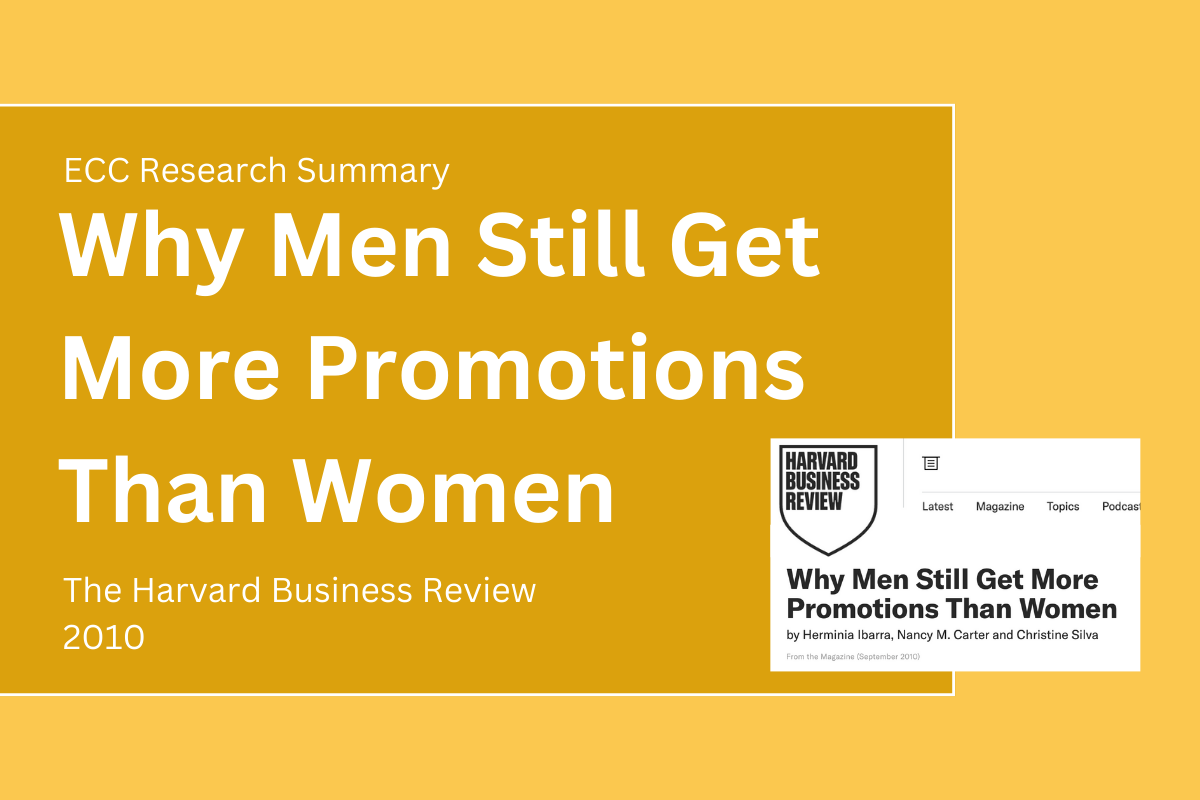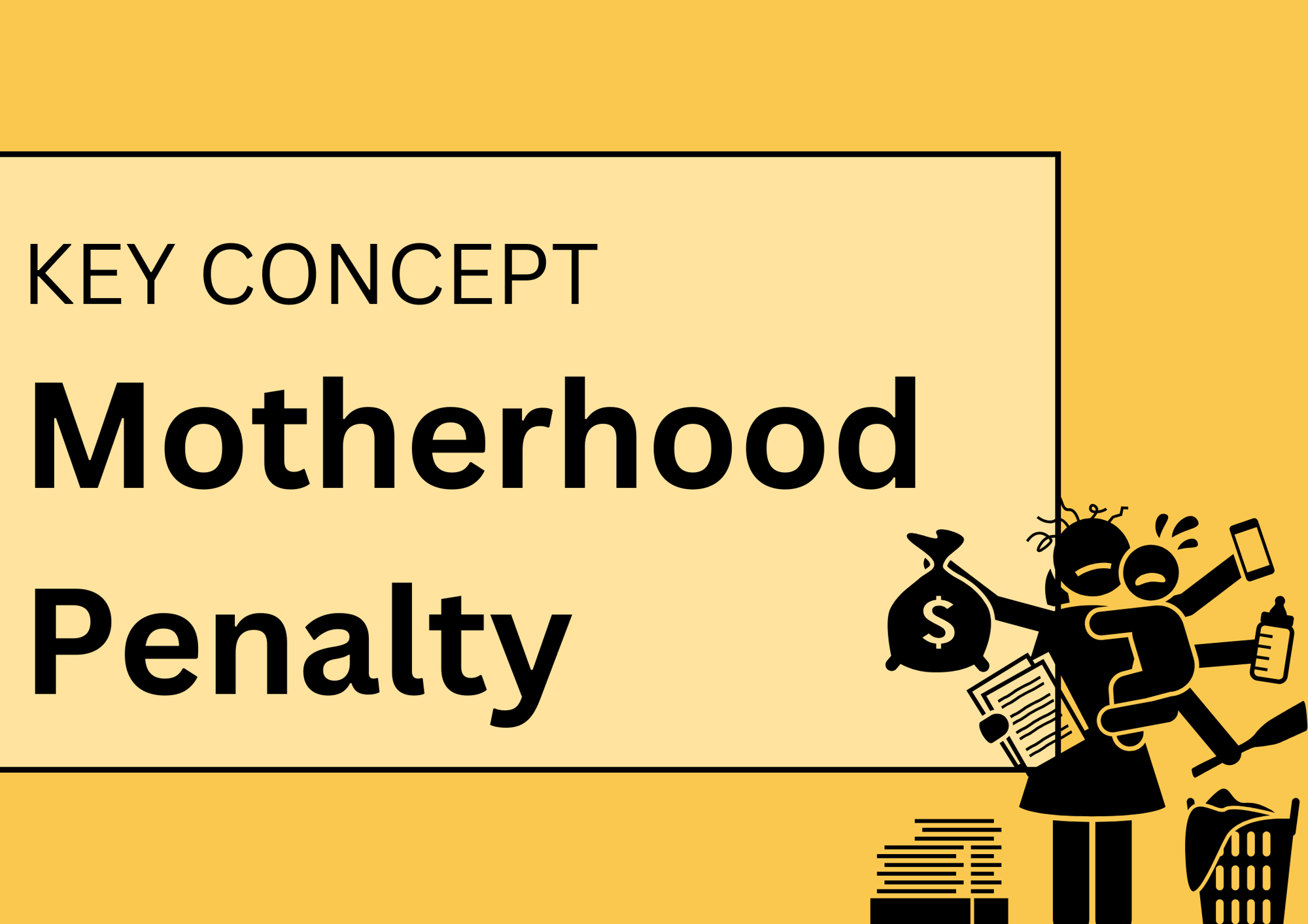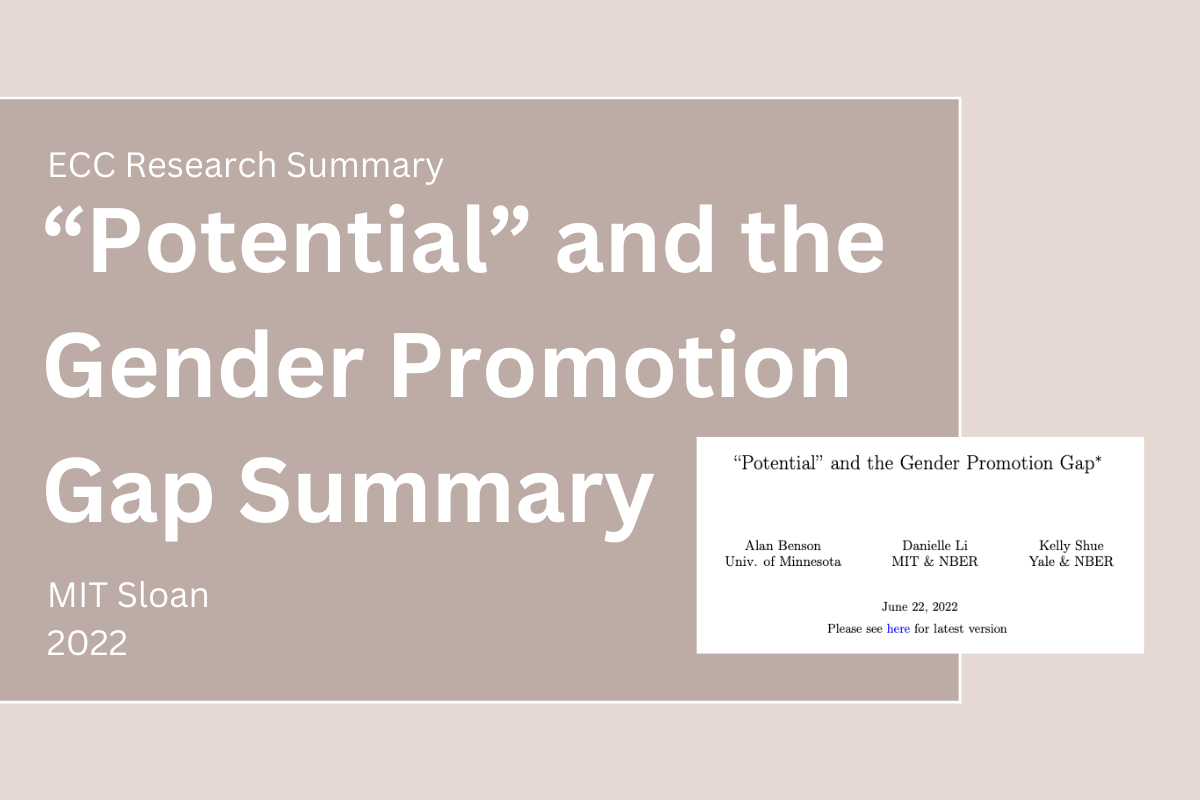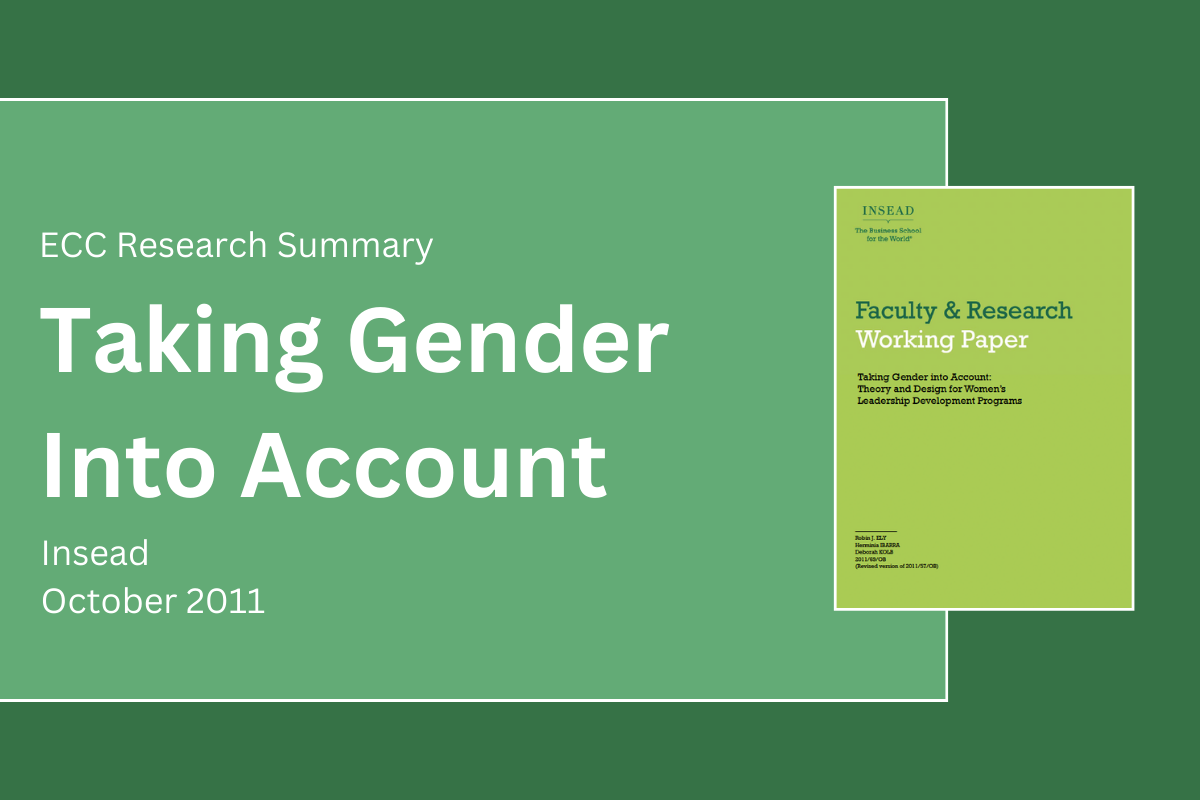2 min read
“Potential” and the Gender Promotion Gap for women
A Summary of the Promotion Bias Women Face Despite the strong performance of women in the workplace, their progression into senior roles...
Insights to help leaders and organisations thrive and drive growth & inclusion.
Geraldine Gallacher Keynote Speaker
Speaker, podcaster, author and master coach.
Our resource hub for working parents, carers and managers navigating work-life balance.
Real stories from leaders driving inclusion & equity in today’s shifting world.
Fortnightly insights on leadership, equity & the future of work. For senior leaders & curious thinkers.
A monthly digest of the shifts shaping how we lead and work.
2 min read
 Phoebe Rees | Research & Impact Manager
:
Aug 8, 2024 9:48:55 AM
Phoebe Rees | Research & Impact Manager
:
Aug 8, 2024 9:48:55 AM

Despite the significant number of high-potential women in full-time employment, looking at the number of women in senior roles shows a different story. To determine why high-potential women were not progressing in organisations, Ibarra et al. conducted a study comprising 40 in-depth interviews with high-profile men and women to identify the hurdles they faced in achieving senior roles and the types of support they received. This research was coupled with an analysis of a survey to spot differences in how men and women are mentored and the impact of this on their career advancement.
The analysis found huge disparities in the types of mentoring men and women received. When women spoke of their mentorship relationship it was described in terms of offering helpful career advice and a greater understanding of themselves and their values. In contrast, men discussed their mentorship as helping to plan career moves and receiving public endorsements and advocacy from their mentors. This consistent difference led the researchers to conclude that women were receiving traditional mentorship, while men were receiving sponsorship. Essentially, high-potential women were over-mentored but under-sponsored relative to their male peers.
The impact was clear: high-potential women were not progressing in their organisations. The research found that while both genders made lateral moves, men received 15% more promotions than women.
The study revealed that while being over-mentored might seem beneficial, it overlooks key issues. Firstly, a woman’s mentor is likely to be relatively junior and less influential in accelerating their mentee's career, as women struggle to secure senior mentors. Secondly, data shows that mentors are often unsupportive and resistant to putting women forward for their next role, rarely resulting in endorsements. Thirdly, senior women in need of sponsorship find it difficult to secure a sponsor at the top, making them less supported than their male counterparts who have benefited from sponsorship for years.
Organisations interested in supporting high-potential women are developing programmes beyond basic leadership training. As the research indicates, successful programmes must clearly define the role of a sponsor to both the sponsor and sponsee, outlining the relationship, expectations, and how to maximise it. Emphasis should be placed on selecting and matching sponsors to enhance chemistry and frequent contact.
The study found that sponsorship programmes should train sponsors, particularly male ones, on the complexities women face on their journey to leadership to avoid advice that contributes to the double bind dilemma. There must also be accountability, where organisations hold sponsors responsible for women’s career advancement.
To find out more about the research summaries referenced in this summary, visit:
Women’s Progression in the Workplace (KCL)
When Women Lead, Firms Win (S&P)
Click here to learn more about the research-inspired: ‘The Overlooked’

Sponsors publicly advocate for others that they back, helping them progress in the organisation. Click here to find out more.

The Sticky Floor is a way to visualise women in their career when they get stuck and don’t materially progress. Click here to find out more.

The Motherhood Penalty describes a subtle form of workplace discrimination faced by women who decide to have children. Click here to find out more.

2 min read
A Summary of the Promotion Bias Women Face Despite the strong performance of women in the workplace, their progression into senior roles...

The Ongoing Gap in Senior Leadership Representation

3 min read
A Summary of the Workplace Biases Women Face Leadership programmes have become a key component of the development opportunities major...